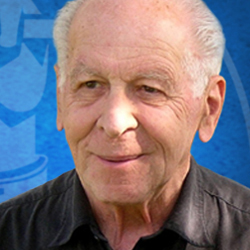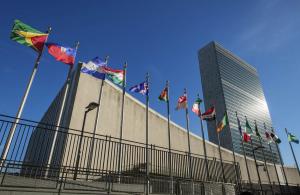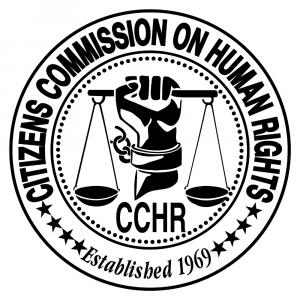CCHR Calls on Congress to Align U.S. with International Human Rights Standards and End Coercive Mental Health Treatment

Professor of psychiatry and humanitarian Thomas Szasz, M.D., co-founder of CCHR, wrote: “Involuntary psychiatric interventions are methods of social control. On both moral and practical grounds, I advocate the abolition of all involuntary psychiatry.”
Research indicates coercive practices negatively impact physical and mental health, often compounding a person’s existing condition.
The United Nations Convention on the Rights of Persons with Disabilities (CRPD), adopted in 2006, recognizes the need for major reforms to protect and promote human rights in mental health treatment. To help countries achieve those reforms, the World Health Organization (WHO) issued its “Guidance on Community Mental Health Services” in 2021.
“Countries need mental health services that reject coercive practices, that support people to make their own decisions about their treatment and care, and that promote participation and community inclusion,” WHO advised.
Coercive mental health practices include forced admission to psychiatric facilities, forced drugging, physical or chemical restraint and seclusion, and involuntary electroconvulsive therapy (ECT, or “electroshock”). WHO also advised addressing “the power imbalances that exist between health staff and people using the services.”
WHO stated that its opposition to involuntary mental health treatment extends even to those experiencing acute mental distress. The report noted that individuals in mental health crisis “are at a heightened risk of their human rights being violated, including through forced admissions and treatment…. These practices have been shown to be harmful to people’s mental, emotional and physical health, sometimes leading to death.”
In October, the World Health Organization (WHO) and the Office of the United Nations High Commissioner for Human Rights (OHCHR) jointly issued a publication, “Mental Health, Human Rights and Legislation,” to provide a blueprint for laws that promote human rights in mental health and end the human rights violations and forced treatment in mental health services that are made possible by current laws.
“Human rights abuses and coercive practices in mental health care, supported by existing legislation and policies, are still far too common,” their news release stated.
The United Nations-affiliated entities advise a complete overhaul of mental health systems by U.N. member countries, including the United States. “Our ambition must be to transform mental health services, not just in their reach, but in their underlying values, so that they are truly responsive to the needs and dignity of the individual.”
The WHO/OHCHR report points out the harm of non-consensual mental health treatment in worsening an individual’s condition. “A growing body of evidence sets out how coercive practices negatively impact physical and mental health, often compounding a person’s existing condition while alienating them from their support systems,” the report says.
This view is backed up by research indicating that forced hospitalization for mental health treatment is both ineffective and harmful to mental health. A recent study found no benefit to patients’ mental health condition and no reduction in their risk of suicide after receiving nonconsensual mental health treatment. [1] Another indicated that psychiatric in-patients were actually more likely to attempt suicide after release if they were admitted and treated against their will, as compared to those who were not. [2]
The Citizens Commission on Human Rights has been a global leader in the fight to eliminate coercive and abusive mental health practices. CCHR has long pushed for widespread adoption of a Mental Health Declaration of Human Rights, which lays out fundamental human rights in the field of mental health to ensure the right to one’s own mind and the right to be free from forced mental health treatment. [3]
CCHR’s co-founder, the late professor of psychiatry and humanitarian Thomas Szasz, M.D., advocated an end to nonconsensual psychiatric treatment. Considered by many scholars and academics to be psychiatry’s most authoritative critic, Dr. Szasz wrote: “Increasing numbers of persons, both in the mental health professions and in public life, have come to acknowledge that involuntary psychiatric interventions are methods of social control. On both moral and practical grounds, I advocate the abolition of all involuntary psychiatry.” [4]
The Citizens Commission on Human Rights was co-founded in 1969 by members of the Church of Scientology and Dr. Szasz to eradicate abuses and restore human rights and dignity to the field of mental health. CCHR has been instrumental in obtaining hundreds of laws against psychiatric abuse and violations of human rights worldwide.
The CCHR National Affairs Office in Washington, DC, has advocated for mental health rights and protections at the state and federal level. The CCHR traveling exhibit, which has toured major cities worldwide and educated people on the history to the present day of abusive and racist psychiatric practices, has been displayed at the Congressional Black Caucus Foundation Annual Legislative Conference in Washington, DC, and at other locations.
[1] https://bmcpsychiatry.biomedcentral.com/articles/10.1186/s12888-023-04584-4
[2] https://pubmed.ncbi.nlm.nih.gov/31162700/
[3] https://www.cchrint.org/about-us/declaration-of-human-rights/
[4] https://www.cchrint.org/about-us/co-founder-dr-thomas-szasz/quotes-on-involuntary-commitment/
Anne Goedeke
Citizens Commission on Human Rights, National Affairs Office
+1 202-349-9267
email us here
Visit us on social media:
Facebook
CCHR: 50 Years of Fighting for Human Rights
Legal Disclaimer:
EIN Presswire provides this news content "as is" without warranty of any kind. We do not accept any responsibility or liability for the accuracy, content, images, videos, licenses, completeness, legality, or reliability of the information contained in this article. If you have any complaints or copyright issues related to this article, kindly contact the author above.


